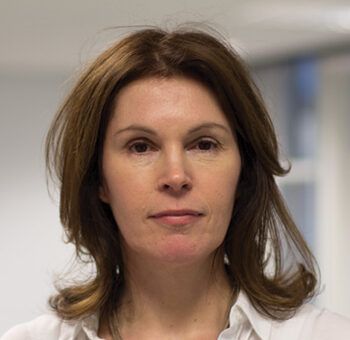Listen to the true experts on death and dying – terminally ill people

As an advocate for terminally ill Britons having choice and control at the end of life, I welcome the debate currently unfolding in The Economist.
We have heard so far from politicians, legal experts, medical professionals and campaigners across the spectrum of opinion and from around the globe. But reading through this series, one perspective struck me as woefully underrepresented – that of terminally ill people, the real experts in death and dying.
Of the 20 articles published so far, just one is authored by someone living with a terminal illness. Noel Conway, the 68-year-old man with motor neurone disease currently fighting in the courts for his right to an assisted death – arguably the face of the assisted dying movement in the UK – is mentioned in just one essay in this series.
400 Britons have travelled to Switzerland in order to have a peaceful, dignified death.
By the time The Economist’s Open Futures Initiative concludes, the total number of Britons who will have travelled to Switzerland in order to have a peaceful, dignified death will have exceeded 400. These people will have been forced to spend thousands of pounds, travel hundreds of miles, die earlier than they would have otherwise wanted and risk prison time for their loved ones. A further 212 terminally ill people in England will have ended their own life at home, possibly alone, frightened and in pain, with no guarantee that their attempt would be successful. Many more, without the strength or means to take matters into their own hands, will have experienced unbearable suffering that even the best palliative care cannot relieve. These are the voices which should be at the heart of this debate.
There is seemingly no shortage of ‘experts’ willing to pontificate on what rights dying people should or shouldn’t have over their own lives, bodies and deaths. For a dying person, facing the inevitability and imminence of death, this is not a theoretical discussion: for them it is not a question of ‘if’, but ‘how’ and ‘when’. As Noel Conway has said:
“I have lived my whole life on my own terms, free to make my own choices. But as my life is brought to an early end by a devastating, incurable disease, this freedom is stripped away. I have accepted that I will die, but how my life ends should be up to me. Instead, this country’s laws force me to choose from a set of horrific options: suffer until the bitter end, make a traumatic journey abroad, or endure a slow death by suffocation by refusing a ventilator. I simply want the option to go when the time is right for me, surrounded by my loved ones in my own bed, peacefully and pain-free.”
What Noel is asking for is not a blind step into the unknown. Assisted dying has been shown to work safely and effectively elsewhere, evidenced by 20 years’ of experience from Oregon and the increasing number of jurisdictions around the world adopting similar laws. There is a wealth of knowledge and expertise which proves assisted dying legislation can provide choice and control to those dying people who want it, while providing robust protection to those who don’t. 1 in 6 Americans, 1 in 4 Australians and all 36 million Canadians live in jurisdictions where assisted dying, in some form, has been legalised. Meanwhile, progress in the UK is being blocked by a small but fervent minority of vocal opponents.
This is not a 50/50 debate and it hasn’t been for some time – 82% of the British public are supportive of assisted dying as a compassionate option for terminally ill, mentally competent adults. Most of the articles published by the Economist thus far have reflected this strength of feeling and it is right that a discussion of assisted dying does not demand an equal balance of views. To give such a hearing to long-disproved concerns and objections would grant them entirely undue weight.
It is only a matter of time before the UK follows in the footsteps of those jurisdictions around the world which have implemented compassionate, evidence-based assisted dying legislation. The UK must listen to its terminally ill citizens and hear the growing public demand for change. For Noel, his loved ones and other dying Britons, this can’t come soon enough.